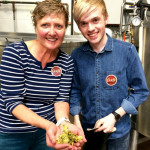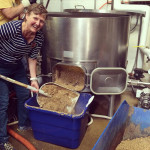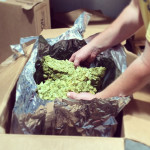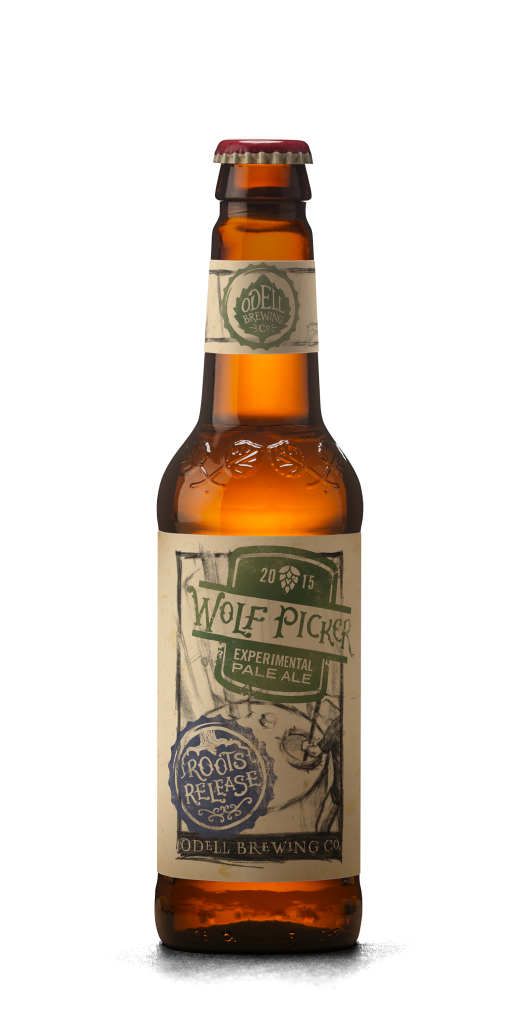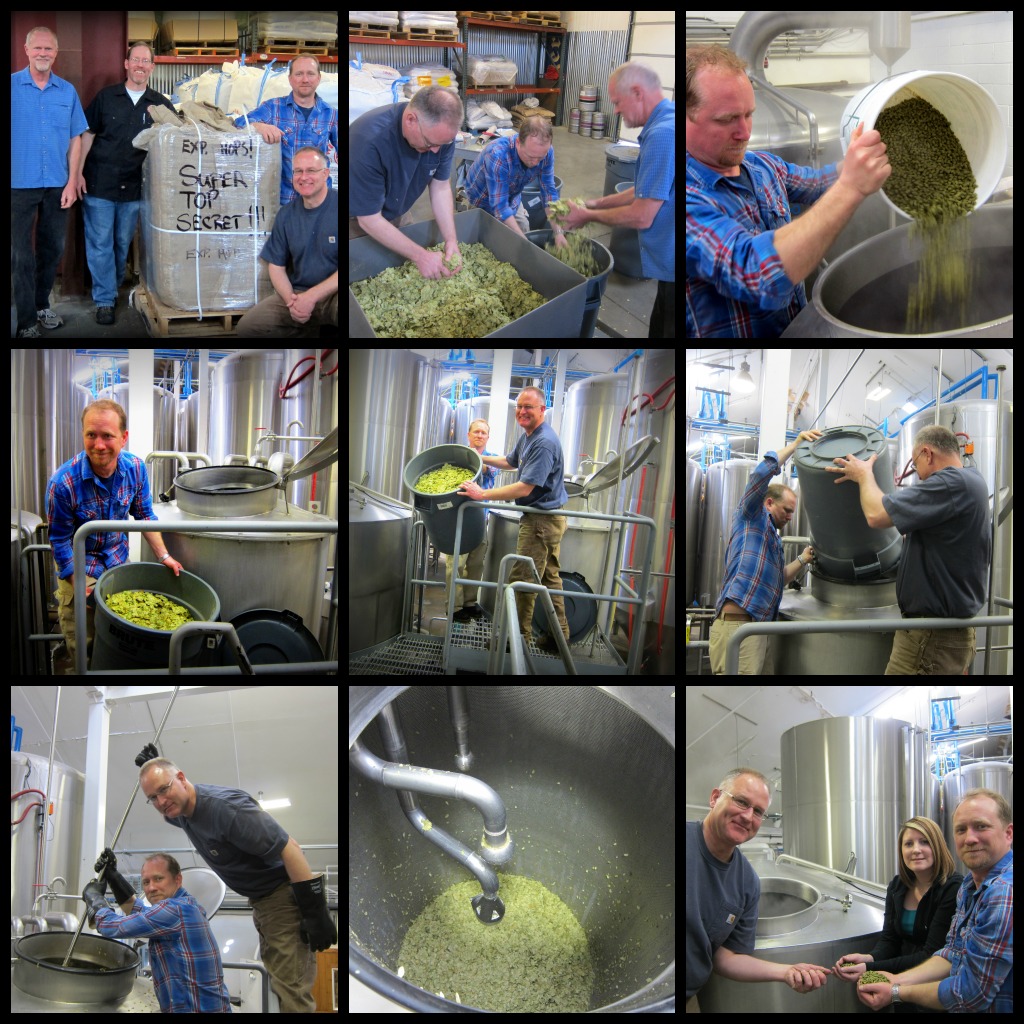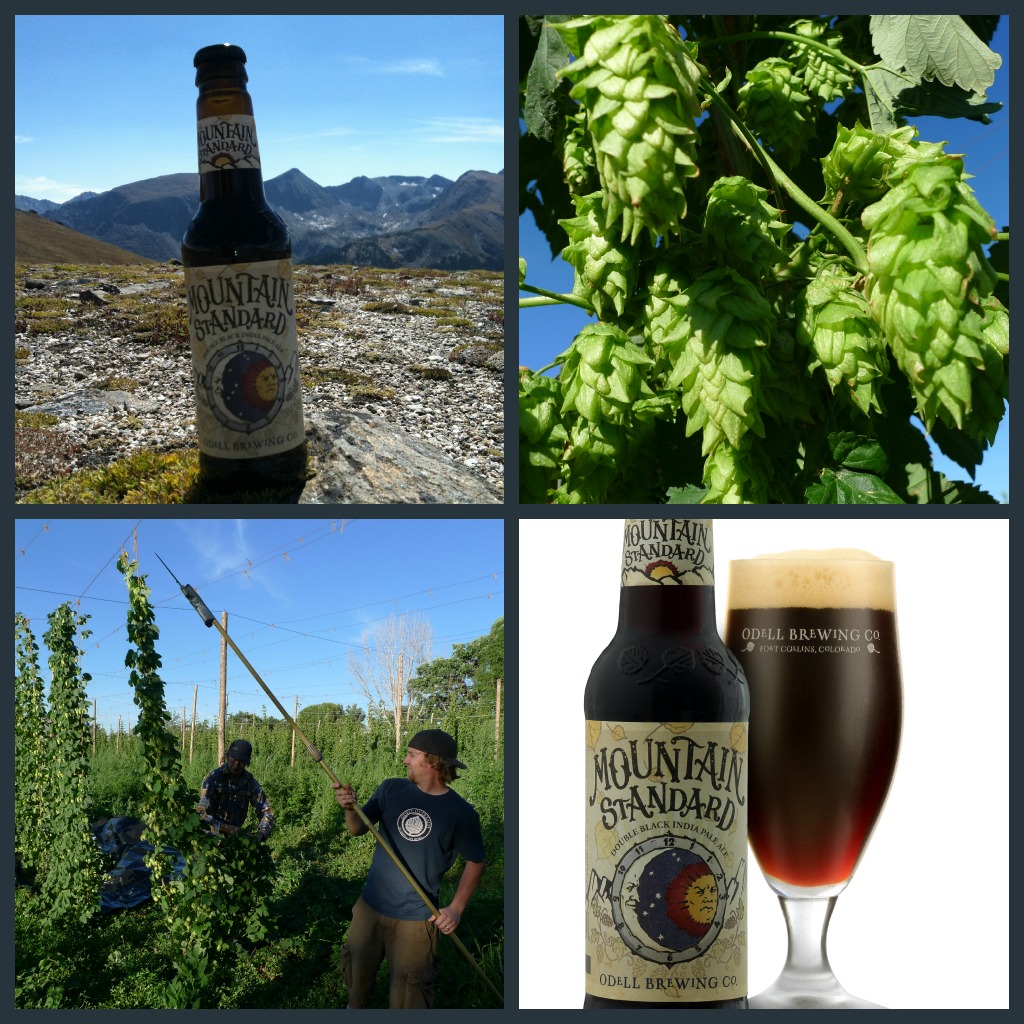Hop Harvest – Hand Picked Pale Ale
Hop harvest season is in full swing! It’s a special time of year where hops, one of our favorite ingredients, are harvested for brewing. At Odell Brewing Co., we get hops from a variety of places. Some of these are stored away for future use while others come right off the bine for brewing. What kind of hops do we use? Where do we get our hops? These are all questions we asked our hop specialist, Scott Dorsch, and here’s what he has to say:
Q: How long do hops take to grow?
Scott: This totally depends on where and when they are planted. In commercial production, female hop rhizomes are planted in late spring or early summer. The amount of 1st year growth is dependent on the quantity of heat units (growing degree units) and light intensity the plant receives. In some areas, it is possible for the female plant to transition from vegetative growth to reproductive growth and produce flowers during the 1st year. Those flowers eventually become the hop cones that we utilize in the brewing process.
As the hop plant is a perennial plant, 2nd year growth begins to emerge from that original rhizome (now considered a crown) after the Vernal (spring) Equinox. The longer light periods and warmer temperatures trigger the dormant plant into vegetative growth much like an alarm clock. As long as the plant has water and nutrition, it will continue to grow until a hard freeze in the autumn. In commercial production, most of the plant material is harvested before a freeze, with the crown staying in a non-dormant stage until that freeze.
In other words… hops grow from the Vernal Equinox till hop harvest which is usually mid-August to late September depending on the type of hop.
Q: Where do hops grow?
Scott: Hops are a very adaptive plant and will grow almost anywhere that temperatures remain above freezing for 100 to 135 days. For commercial production, areas between the latitudes of 35 and 55 degrees contain the optimum day length and sunlight conditions for maximum flower and cone production.
In 2014, the USA produced 34% of the worlds hop production, second to Germany at 41%. Most commercial hops in the USA are produced in the Pacific Northwest – Washington leading with 78% of the USA production followed by 11% in Oregon and 9% in Idaho. The Colorado production is very small, accounting for only 0.2% of the USA acreage in 2014.
Q: How many hop varieties are there?
Scott: This is a difficult question as it changes every year! In 2014 in Washington, 31 different cultivars accounted for 77% of the acres planted. Craft brewing has really changed the make-up of types that are have been planted recently. When you consider hops across the globe, there are probably 100 to 125 genetically different hop types in commercial production.
Q: What time of year do you harvest hops?
Scott: Mid-August to late September in the Northern Hemisphere
Mid-February to early April in the Southern Hemisphere
Recently, we handpicked hops at a local hop farm, Fort Collins Hop Acres, to add to a juicy pale ale as part of our bridge series beers. Here is what Scott has to say about this upcoming brew:
Q: What kind of hops were used in Hand Picked Pale Ale?
Scott: For Hand Picked Pale Ale, we used a variety of hops in the kettle. We used all Colorado Chinook from Fort Collins Hop Acres in the hopback.
The Chinook plants that were harvested at Fort Collins Hop Acres were planted in 2012 from rhizomes originating from Summit Plant Labs in Fort Collins. Summit Plant Labs also supplies the hop plants in our backyard at the brewery. This is the 3rd harvest season Odell Brewing Co. has purchased these hops from Fort Collins Hop Acres. This year, we took a large group of co-workers out to observe the harvest process with the Fort Collins Hop Acres Wolfpicker. (Wolfpicker is the name of the machine that picks the hops from the bines.) Chinook hop was developed by the USDA from a cross made in 1974. Its ancestry includes English types Petham Golding and Brewer’s Gold.
Q: What kind of flavors can we expect in Hand Picked?
Scott: Hand Picked will have notes of peach rings, lemon and stone fruit with a bit of garlic and floral tones.
Handpicked Pale Ale will be available in our tap room starting Friday, October 2. In late August, the Odell Brewing team ventured about 20 miles north of the brewery to help harvest hops from Fort Collins Hop Acres. Within 24 hours, 600 pounds of fresh local Chinook cones were bathed in hot wort as it made its way from the kettle through the hopback. It’s a labor of love and treat for the palate!







